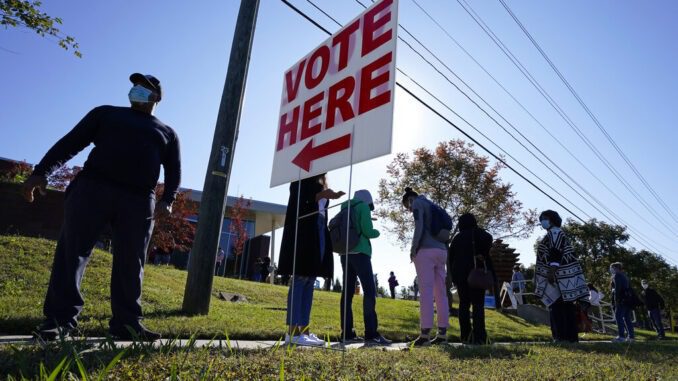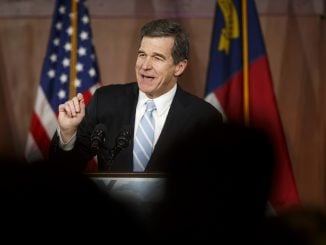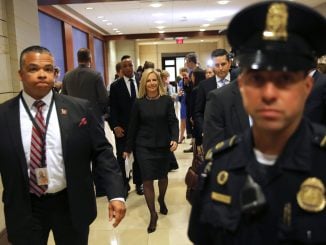
RALEIGH — Federal judge William Osteen said a consent agreement between left-leaning plaintiffs and the N.C. State Board of Elections likely has equal protection violations, but changes this late in the election cannot be undertaken, in an order announced Wednesday afternoon.
“Plaintiffs have established a likelihood of success on their Equal Protection challenges with respect to the State Board of Elections’ procedures for curing ballots without a witness signature and for the deadline extension for receipt of ballots,” Osteen’s decision says, but continues, “nevertheless, under Purcell and recent Supreme Court orders relating to Purcell, this court is of the opinion that it is required to find that injunctive relief should be denied at this late date, even in the face of what appear to be clear violations.”
The Purcell Osteen is referring to is the Purcell v Gonzalez case. In that case, the Supreme Court reversed the U.S. 9th Circuit Court of Appeals’ August decision that blocked an Arizona voter ID law just months ahead of the 2006 midterm election.
Parties in a suit involving election changes invoke Purcell to get a higher court to stay a lower court ruling that changes the rules of an upcoming election. The main thrust of Purcell is that a court should not change election rules close to an election because it can cause serious problems for election officials and voters alike.
The late changes to election law contained in the consent agreement were likely strategic by the parties involved in the agreement knowing that a challenge in court would be valid, but that at such a late date would be denied via a Purcell argument.
The 91-page order encompasses three cases total that were filed following the N.C. State Board of Elections (NCSBE) controversial consent agreement, which led to the two Republican members of the board resigning.
Osteen struck one part of the agreement – which would have counted absentee ballots without a witness. A state law passed in June by the legislature eased the witness requirement for the 2020 election but the NCSBE’s agreement removed it entirely.
The remainder of the agreement, however, appears to be clear for the board to use in the election, including allowing ballots postmarked on election day, Nov. 3, to be accepted through Nov. 12.
The agreement also permits outdoor ballot drop boxes.
“Judge Osteen concluded in no uncertain terms that the N.C. State Board of Elections violated the U.S. Constitution and North Carolina law by changing election laws after ballots had already been cast,” said Senate Leader Phil Berger (R-Eden). “Judge Osteen was right to stop the Board’s elimination of the absentee ballot witness requirement. We disagree with his determination that he lacks the power to block some of the other tenets of the Board’s illegal settlement.”
Berger said all options would be available, including appealing to the U.S. Supreme Court.
“Two federal judges have now ruled that the Board of Elections violated the Equal Protection Clause by changing election laws after voting started. Unelected bureaucrats cannot change voting laws in the middle of the election, and we intend to press those claims to the U.S. Supreme Court if necessary,” Berger said.
House Speaker Tim Moore also issued a statement.
“North Carolinians can have confidence a bipartisan witness requirement for absentee ballots has been upheld by federal courts, in a win for the democratic process against unacceptable partisan collusion conducted by the Democratic Attorney General and Hillary Clinton’s partisan lawyer,” said Moore.
The case landed back in Osteen’s court after Judge Dever blocked the terms of the NCSBE’s settlement agreement and issued a temporary restraining order. Dever had rejected arguments by the NCSBE and the attorney general’s office that the settlement agreement was an attempt to comply with a ruling made by Osteen in early August.
“At bottom, the NCSBE has ignored the statutory scheme and arbitrarily created multiple, disparate regimes under which North Carolina voters cast absentee ballots,” Dever wrote. “And plaintiff voters in this case and in Wise are likely to succeed on their claims under the Equal Protection clause.”
Dever also wrote that the consent agreement “materially changing the electoral process in the middle of an election after over 300,000 people have voted” and that it “undermines that confidence and creates confusion.”
Thursday, NCSBE executive director Karen Brinson Bell issued a statement, saying that the board is finalizing guidance, but, “Wednesday evening’s rulings allow us to move forward to ensure all eligible voters can successfully cast a ballot in the general election. Already, more than 530,000 North Carolinians have cast their ballots by mail. In-person early voting beginning today across North Carolina, we encourage all eligible North Carolinians to exercise your right to vote.”




